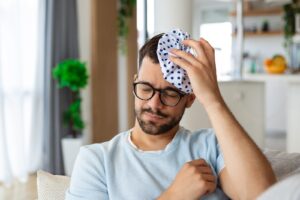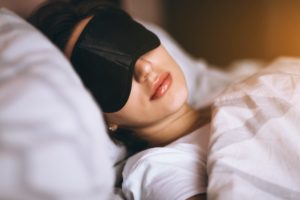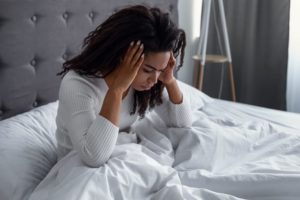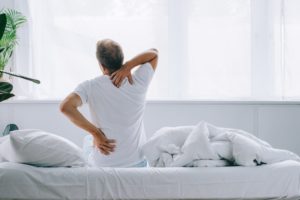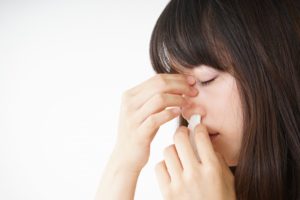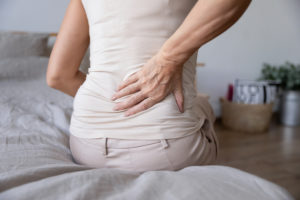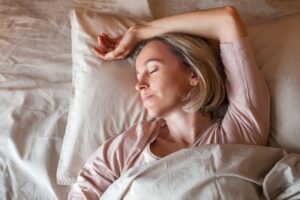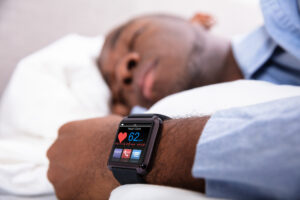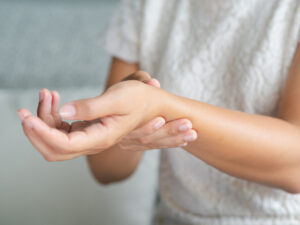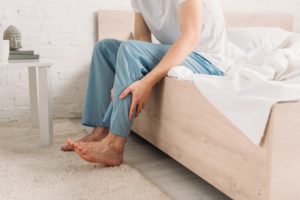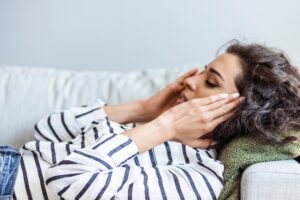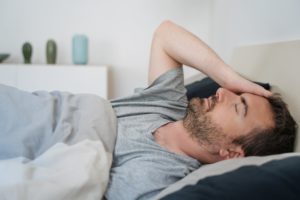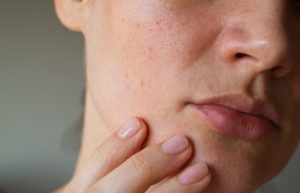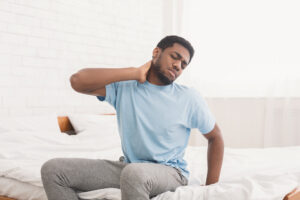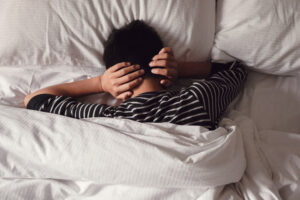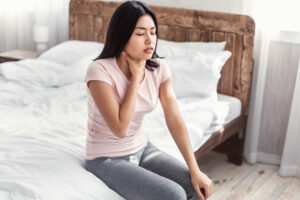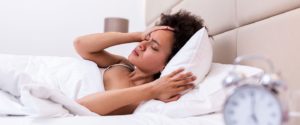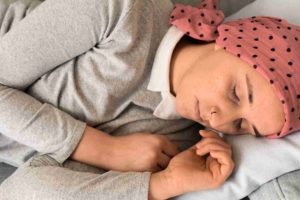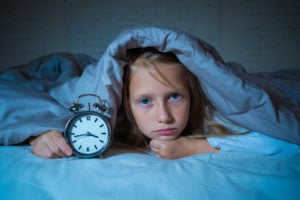Physical Health and Sleep
How Are They Connected?
The relationship between sleep and overall physical health is complex and interconnected. Sleep allows both the body and brain to recover during the night, ensuring you feel refreshed and alert when you wake up in the morning. At the same time, your physical health and associated medical conditions can make it difficult to get the sleep you need.
Sleep plays a vital role in your mental and physical wellbeing. Different processes that occur during sleep help to promote healthy brain activity and maintain good overall health. A lack of high-quality sleep means your body has less time to recover during the night. This can also lower your body’s defenses against diseases and medical conditions.
How Your Physical Health Impacts Your Sleep
A person’s physical health can impact whether or not they get enough high-quality sleep. Physical and mental illnesses can cause a person to fall short on sleep. Similarly, medications and supplements a person may take for health issues can negatively impact sleep duration and quality.
While people often become sleep-deprived because they do not get enough sleep, it can also stem from not getting enough quality sleep. Even a person who sleeps eight hours per night can become sleep-deprived if their sleep quality is poor.
Poor sleep quality usually results from a person waking up during the night, even if these awakenings are brief and not remembered. Sleep disorders, like obstructive sleep apnea and periodic limb movement disorder, can cause multiple awakenings during the night and reduce sleep quality.
Hormonal fluctuations that occur during the menstrual cycle, pregnancy, and menopause can also interfere with getting quality sleep.
1The Effects of Sleep Deprivation on Your Physical Health
Sleep deprivation can have a significant impact on overall physical health, as adequate sleep is essential for various bodily functions.
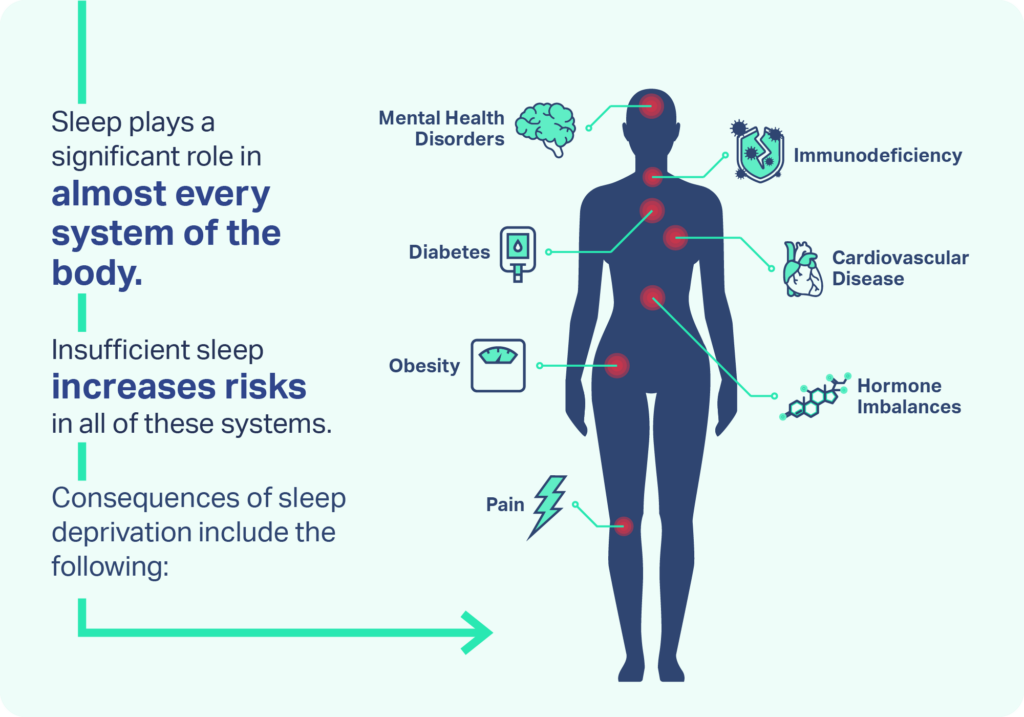
Over time, not getting enough sleep can negatively impact a person’s physical health in multiple ways. When a person falls short on sleep, they face a higher risk of these issues:
- Weight gain and obesity
- Dementia
- Injury from car crashes and work accidents
- Heart attack and stroke
- High blood pressure
- Type 2 diabetes
- Obstructive sleep apnea
- Depression and anxiety
- Reduced immunity and risk of infection
- Cancer
- Early death

Are You Getting Enough Sleep? Here’s How to Tell
Adults require at least 7 hours of sleep each night. When a person isn’t getting enough sleep, they often feel tired during the day and like their physical and mental well-being is compromised. Symptoms of sleep deprivation include:
- Feeling extremely tired during the day
- Mood changes, including increased stress, anxiety, or irritability
- Impaired thinking, memory, and judgment
- Reduced attention span

The Physical Benefits of Sleep
When a person who is falling short on sleep begins getting adequate sleep, the symptoms of sleep deprivation may be reversed. Restoring adequate sleep after sleep deprivation may bring about an improved mood, an increase in energy and attention, and feelings of improved well-being. The risk of car crashes or work accidents may also be reduced.
Sometimes, sleep deprivation impacts a person’s social and work life. They may cut back on enjoyable activities due to tiredness or find they are falling behind on their responsibilities at home or work. If adequate sleep is restored, a person may notice they have more energy to dedicate to their work, hobbies, and home life.
The Importance of Sleep Hygiene
There are many lifestyle changes you can make to help yourself get enough high-quality sleep on a regular basis.
- Be consistent: Going to sleep at the same time each night and waking up at the same time each morning can promote healthy sleep.
- Keep a bedtime routine: Practice a nightly routine of calm activities you engage in to prepare for sleep. This routine may involve dimming the lights and doing something quiet, like reading, for a couple of hours before bedtime.
- Avoid blue light at night: Stop using electronic devices, like smartphones and computers, at least half an hour before you plan on sleeping. These emit blue light, which suppresses melatonin, the sleep hormone.
- Exercise regularly: Exercising daily has been found to improve sleep quality and make falling asleep easier.
- Create a sleep-friendly bedroom:Keep your bedroom cool, dark, and quiet to improve sleep quality and duration. Ear plugs and blackout curtains may help.

Still have questions? Ask our community!
Join our Sleep Care Community — a trusted hub of sleep health professionals, product specialists, and people just like you. Whether you need expert sleep advice for your insomnia or you’re searching for the perfect mattress, we’ve got you covered. Get personalized guidance from the experts who know sleep best.
References
3 Sources
-
Maski, K. (2024 January). Insufficient sleep: Evaluation and management. In T. Scammell & A. Eichler (Ed.). UpToDate.
https://www.uptodate.com/contents/insufficient-sleep-evaluation-and-management -
Paruthi, S., Brooks, L. J., D’Ambrosio, C., Hall, W. A., Kotagal, S., Lloyd, R. M., Malow, B. A., Maski, K., Nichols, C., Quan, S. F., Rosen, C. L., Troester, M. M., & Wise, M. S. (2016). Consensus statement of the American Academy of Sleep Medicine on the recommended amount of sleep for healthy children: Methodology and discussion. Journal of Clinical Sleep Medicine, 12(11), 1549–1561.
https://pubmed.ncbi.nlm.nih.gov/27707447/ -
Cirelli, C. (2024 January). Insufficient sleep: Definition, epidemiology, and adverse outcomes. In R. Benca & A. Eichler (Ed.). UpToDate.
https://www.uptodate.com/contents/insufficient-sleep-definition-epidemiology-and-adverse-outcomes


